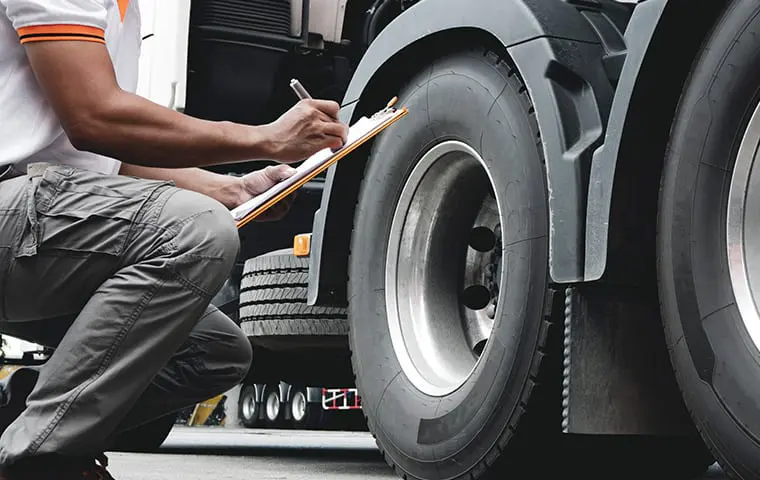Truck drivers are no doubt already familiar with electronic logbooks. In many jurisdictions, drivers are mandated by law to use electronic logbooks in order to meet hours of service (HOS) compliance. However, electronic logbooks for truckers can achieve much more and can even improve truckers’ efficiency and costs.
Electronic logbooks help maximize operational efficiency and improve the safety of your fleet. In this article we will outline how electronic logbooks work as well as suggest four tips as to how this technology can help truckers improve efficiency and costs.
How Electronic Logbooks Work
Electronic logbooks synchronize with a vehicle’s engine in order to record the driver’s on-duty and off-duty time. They’re also used for regulatory compliance. Electronic logbooks are used to securely transfer HOS data to designated safety officials. These logbooks record accurate information as they’re integrally synchronized with the vehicle’s engine.
Electronic logbooks for truck drivers were originally developed to just monitor HOS. However, The Federal Motor Carrier Safety Administration (FMCSA) now mandates that electronic logbooks automatically record information on a vehicle's location, engine hours, miles, driver identification, authenticated users, and motor carriers.
Some electronic logbooks also record data that is not required by the FMCSA such as HOS violations, GPS location, duty status, fuel level, configurations, vehicle speed, hard braking or cornering, idling times, exempt miles, and vehicle inspections. In addition, some electronic logbooks offer geofence reporting which records the number of visits, turnaround time on site, total time on site, and even more. Plus, using electronic logbooks can significantly help extend your equipment lifecycles.
4 Tips for Truck Drivers to Improve Efficiency & Costs by Using Electronic Logbooks
Tip #1 - Safety Saves You Money
Everyone wants to keep their CSA score low. Proactively managing your fleet can help keep drivers safe but also help the bottom line. Electronic logbook data can reveal dangerous speeding as well as hard braking and cornering. Some devices will even report excessive idling times. Understanding these trends and identifying problem behaviors can help save you money on maintenance and reduce accidents.
Electronic logbooks for truck drivers can also let drivers and dispatchers know how much time a driver has left behind the wheel each shift. For the driver, there is often a countdown timer and audible alerts so they’re never caught off guard when a break is required. Alerts help make sure drivers have plenty of time to reach a safe destination to park before reaching their Hours of Service limit. In addition, dispatchers have access to this data in real time which leads to more intelligent dispatching decisions being made.
Electronic logbooks ensure safer operations. They hold drivers and their companies accountable to HOS regulations. They create a safer work environment and encourage drivers to take the breaks they need.
The FMCSA released a report from the Center for Truck and Bus Safety of Virginia Tech Transportation Institute which concluded commercial drivers using electronic logbooks tend to be significantly safer. They have a lower total crash rate and a lower preventable crash rate than vehicles that are not equipped with this technology. The total crash rate and preventable crash rates were down 11.7% and 5.1% respectively for the group equipped with electronic logbooks.
The FMCSA estimates that electronic logbooks save $570 million annually through crash reductions in the United States. Preventing just one accident per year alone pays for installing electronic logbooks in your fleet.
Tip #2 Saving on Fuel Costs
Electronic logbooks can offer a significant return on investment. This is especially true when it comes to improving fuel economy. We have already mentioned how this technology can help you identify dangerous driving—like speeding and hard braking. However, these same driver behaviors (and others tracked by electronic logbooks such as idling) are also terrible for fuel economy.
Electronic logbooks can help drivers identify bad driving patterns and correct them. This can help the fleet save on fuel costs. Even small mistakes can add up to large losses in fuel economy and electronic logbooks record it all.
Tip #3 - Easily Comply with Regulations
Truckers are subject to a ton of legislation. When using an electronic logbook, roadside inspections go much faster. They help truck drivers get back on the road in less time because inspection officials can view areas of concern or verify compliance with HOS regulations with ease. Using electronic logbooks also speeds up the job of safety managers when they must complete DOT audits. Electronic logbooks for truck drivers help increase efficiency when it comes to compliance.
Tip #4 - Digital Beats Paper
Electronic logbooks require an upfront investment. However, they also have amazing potential for saving time and money. An FMCSA study found that truckers spent significantly less time using an electronic logbook compared to filling out paper forms. This cost savings alone can pay for the cost of implementing electronic logbooks.
The FMCSA estimates that the amount of money saved annually in reduced paperwork costs via the use of electronic logbooks is $2.4 billion in the United States. Plus, this technology also improves the accuracy of your data recorded.
Conclusion
Electronic logbooks help monitor the efficiency of your fleet, its drivers, and fuel costs. They allow you to spot discrepancies and determine areas where improvement is needed. Larger fleets often find that the reporting and analytics capabilities of electronic logbooks are more important than the compliance aspects for improving operational efficiencies. Single truck operations love electronic logbooks because they lessen the likelihood of receiving a citation for a log violation. This saves time, money, and the hassle of dealing with the legal system.
Electronic logbooks, or eLogs, is a simple way to improve efficiency in fleets of all sizes. Using Azuga Fleet™, your team can save time and money when they implement this smart software. Learn more about how the Azuga team can take your fleet to the next level.








